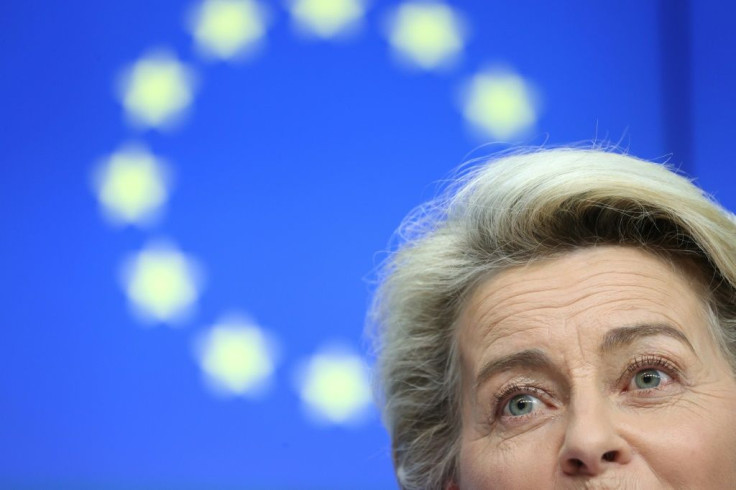EU Chief Signs Off On Spain, Portugal Recovery Plans
Spain and Portugal became the first EU countries to win Brussels' approval Wednesday for their recovery plans seeking funding from the bloc's multi-billion-euro coronavirus rescue fund.
"The European Commission has decided to give its green light to Spain's recovery and resilience plan," commission chief Ursula von der Leyen said in Madrid, just hours after she signed off on the Portuguese plan.
Spain, whose economy has been particularly badly hit by the pandemic, will be the second-biggest beneficiary of the landmark 750-billion-euro ($910-billion) recovery plan, Next Generation EU, which was drawn up nearly a year ago.
"These reforms, I'm deeply convinced, will make Spain come out of the pandemic stronger than ever before," Von der Leyen said, noting that 40 percent of the funds would be driven into the green transition.
"That is enormous," she said, hailing the plan as "ambitious" and "far-sighted".
"Next Generation EU is our unique chance to move forward into a more green, a more digital, a more sustainable society."
Spain is to receive 140 billion euros in funding. Half of the funds will be grants and the other half loans. Spain has pledged to invest a large part of it into the green transition.
Prime Minister Pedro Sanchez said it was "a historic day for Spain" but also for Europe "because the plans approved today for Portugal and Spain open the door to a new way of .. cooperating together and responding to the challenges we face as societies."
Spain was particularly hard hit when the pandemic first erupted in early 2020, while Portugal suffered a major surge in cases at the start of this year.
With both countries hugely dependent on tourism, their economies have been significantly affected.

Portugal, which currently holds the EU's six-month rotating presidency, was the first country to submit its own plan back in April and is set to receive 16 billion euros in funding.
As holder of the rotating presidency, it has made the rapid adoption of these recovery plans a priority following their recommendation by the commission.
On Thursday, Von der Leyen heads to Greece and Denmark and then to Luxembourg on Friday on a tour that will take her to most of the European Union's 27 member states.
In setting off on Wednesday, she used her "Covid passport" for the first time, the European health certificate which Belgium began using Wednesday and which will become operational across the EU on July 1.
"I'm very curious to test and to see how this certificate will work," she said, showing the QR code on her phone.
"Two southern European countries that previously did not feel supported within Europe have now benefitted from the extraordinary support and generosity of their northern partners," said Toni Roldan, head of research at the Esade Centre for Economic Policy (EsadeEcPol) in Madrid.
Since the eurozone debt crisis began in 2011, Lisbon and Madrid have often been in the firing line of Europe's more "frugal" members frustrated at having to fork out money to subsidise spending in what they have seen as the somewhat less fiscally virtuous south.
Although some of the conditions attached to the stimulus packages remain vague, Spain and Portugal could have shown "greater reformist ambition" in using the money, particularly in the area of education, Roldan told AFP.
"I understand it's difficult for the commission to demand deep reforms in this complicated environment with the rise of populism and all the post-pandemic suffering, but at the same time, it's the best moment."
Since the end of April, 23 governments have submitted investment and reform plans to Brussels for approval. The commission has two months from the date of submission to give its opinion after which the European Council must give its approval within a month.
On Tuesday, the EU said it had raised its first 20 billion euros on money markets by issuing 10-year bonds to fund the recovery plan, kicking off Europe's largest-ever institutional bond issuance.
© Copyright AFP 2024. All rights reserved.





















